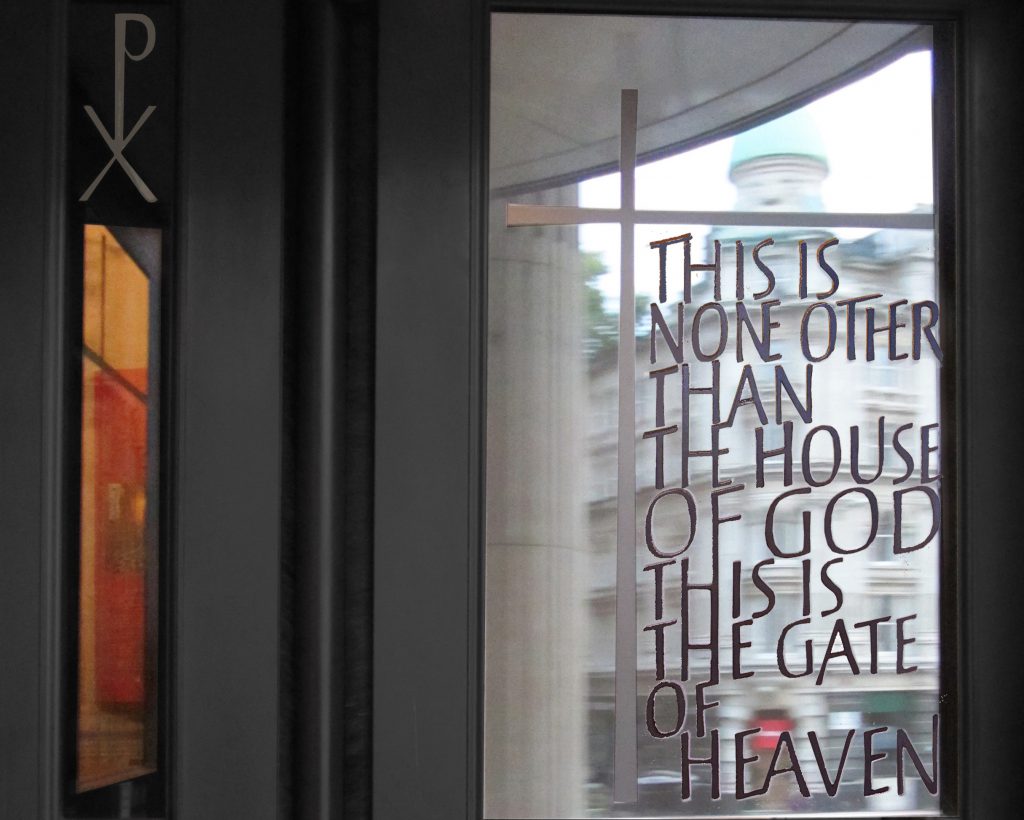Lesson 10: In the Jesus space

(Jude 1: 21)
Lectio divina was central in the previous lessons. I encourage you to keep practicing for yourself, while we move on to the next contemplative practice to bring us nearer God’s presence: the Jesus Prayer.
When following this course and doing the exercises always choose a pace that is best for you. Feel free to skip something if at some point it better suits your needs. What matters is holding on to the eagerness to learn to be more in God’s presence and find peace in Him.
10.1 Jesus space
Before saying anything about the Jesus prayer, I would like to introduce the term ‘Jesus space’ first. Over the years I have really come to cherish the word Jesus space. I did not come up with it myself, I got it from Benedictine monk Benoît Standaert, who wrote a book on this subject in the year 2000.
First of all let me explain a little about the meaning of this word. The Jesus space is, in the words of Benoît Standaert, ‘a well defined spiritual space that opens with the name of Jesus.’
A space. That is a word that evokes positive associations: it is not stuffy, it is spacious and open, conditions are good. Space also indicates: a place, a location, a spot, an expanse, an area you can inhabit. The concept of space also gives rise to other words and sensations, such as: freedom, hospitality, openness and friendliness.
It is a ‘space of the mind’. It has everything to do with spirituality. The Spirit of Jesus determines the atmosphere, the fragrance, the color of that space. You could even say that Jesus is that space. Jesus as space, space of the Spirit, space where the Spirit resides and flows, space where the Spirit conducts its transformative labour of love.
10.2 A space of grace and goodness
The Jesus space is a space of the mind, one that is well defined. This delineation does not permit just anything. This space is not vague or ambiguous in the sense of anything is possible. No, the name Jesus defines that space. It is a space of salvation, a space of forgiveness and healing and deliverance, it is the space of God’s grace and goodness, of His loving presence. It is the space where Jesus is present, where Jesus speaks, where Jesus listens, where Jesus’ presence makes all the difference, where the radiance of his love and light touches and transforms those who are present. Only the name of Jesus opens this space, no other names, no other powers, not my ego or my endeavours. The name of Jesus opens this clearly determined spiritual space of salvation and grace, the shalom of our Lord.
These are just some initial words and thoughts on this topic to help come to grips with the reality of the Jesus space. Now how do I access this Jesus space? How can I learn to enter and experience it?
10.3 The Jesus prayer
I would like to put forth a three-way answer to that last question (and I am not saying there are no other valid methods). Three approaches, three spiritual exercises, three contemplative methods that help you enter and experience the Jesus space, to bring you into God’s presence, the presence of the Lord:
- lectio divina, about which the preceding chapters spoke;
- the Jesus prayer, the words ‘Lord Jesus Christ, Son of God, have mercy on me’ repeated over and over again in prayer;
- centering prayer, a way of praying that focused entirely on silence, guided by a one-word prayer.
There is a certain ‘ascendance’ in these three spiritual exercises. Or maybe I should say: a ‘diminution’, since there are fewer and fewer words:
- for lectio divina each time there is a short bible excerpt that is central: the prayer text;
- in the Jesus prayer (‘Lord Jesus Christ, Son of God, have mercy on me’) that single sentence of ten words forms the core: the prayer sentence;
- with the centering prayer only one word remains, aiding you to come and stay in the silence of God’s loving presence: your prayer word, or sacred word.
In the coming lessons, we will continue with the Jesus prayer, which has a very important place in the traditions of the Eastern Orthodox Church. We will discover how this prayer phrase benefits us as an expression of our desire to be, and live, close to Jesus.
Reflecting
1. What thoughts, feelings and desires does the word Jesus space evoke in you?
2. What is your view on the Jesus prayer now? Were you familiar with it already? Or is it new to you?
Practicing
You can do a lectio divina exercise today, for instance at Psalm 63: 2-3:
So I have looked upon you in the sanctuary,
beholding your power and glory.
Because your steadfast love
is better than life,
my lips will praise you.
Or use a Bible verse from an earlier lesson (like Psalm 143 or John 15), that you think has a lot more to give you.
If you like, you can use the timer.
Choose your ’timer’:
Before you start the Lectio you can listen attentively to another Taizé song: ‘Ubi caritas’.
Inspiring quote
This time, to sample the vibes of the Jesus Prayer, a quote from Bernard of Clairvaux, a monk from the 11th century. The quote is from a sermon on the Song of Solomon.
Write what you will,
I shall not relish it unless it tells of Jesus.
Talk or argue about what you will,
I shall not relish it if you exclude the name of Jesus.
Jesus to me is honey in the mouth,
music in the ear,
a song in the heart.
